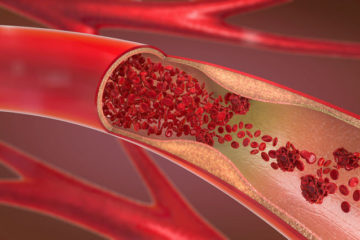If you’ve watched any TV in the last week, you will no doubt have seen the number of ads for Nexium. Nexium is the most commonly prescribed drug in the world. It is usually prescribed for heart burn (or gastro-oesophageal reflux). But this drug, a proton pump inhibitor (PPI), isn’t being prescribed anymore – because you can buy it over the counter – just like jelly beans!.
This is alarming. Because the effects of PPIs go further than just lowering stomach acid. Few people know this.
What is reflux?
Reflux is when the oesophagus is repeatedly exposed to stomach contents. Symptoms can include a dry cough, burning chest pain, sour taste in the mouth, sensation of a lump in the throat, regurgitation of food/sour liquid, sore throat or hoarseness.
Chronic reflux can lead to erosive cell changes in the oesophagus which can become ‘Barrett’s oesophagus’. This is a major risk factor for oesophageal cancer which is the reason these drugs are so heavily promoted.
How PPIs work
Proton pump inhibitors (PPIs) are one of the drug-types used to combat reflux. They include Nexium, Losec, Prilosec and Somac. The other types are antacids (such as Tums, Gaviscon, Mylanta) and H2-histamine blockers (like Zantac). PPIs effectively block acid production in the stomach.
And this is a problem.

Effects of PPIs by lowering of stomach acidity
It may seem practical to lower stomach acid. After all, if stomach acid is neutralised, it can’t burn the oesophagus when it comes up, lowering chances of cell damage.
But, as with most of our body processes, there is a reason for the acidity of stomach acid.
Stomach acid is an acid bath which is strong enough to kill many types of bacteria. This protects us from bacteria and viruses that naturally come in with food and water. Neutralising the stomach acid therefore leaves us at higher risk of food poisoning.
Further, it increases the risk of pneumonia by about 30% because the barrier that would have killed the bacteria that causes pneumonia has been weakened. An estimated 33, 000 hospital deaths a year from pneumonia may result from patients taking acid-inhibiting drugs like PPIs.
More effects of PPIs related to stomach acid
Further effects of PPIs include poor absorption of particular minerals. This is the direct result of not having strong enough stomach acid to break them down properly.
Stomach acid is needed to solubilise calcium so it can be absorbed. By reducing stomach acid with PPIs or any acid-reducing medication, calcium cannot be well absorbed. This leads to an increased risk of bone fracture. It also affects magnesium absorption which can be life-threatening as the heart muscle also needs magnesium to function properly.
Low stomach acid is also linked to dementia. This is not so surprising as lowered absorption of minerals is part of the dementia picture.

What is this ‘proton pump’?
A ‘proton’ is a positively-charged atom – specifically, a hydrogen ion – a positively charged hydrogen atom.
When we are talking about proton ‘pumps’, we are not talking about a thing, a noun, like a pump in a boat. We are talking about a series of chemical reactions that effectively PUMP these protons from one place to another. We are talking at the atomic level, about chemical systems that are working all the time in our bodies, in every part of them – inside every single cell.
These proton pumps are not just in the stomach – they are everywhere.
Enzyme reactions cause a concentration of protons (hydrogen ions) to form a gradient across a cell membrane, forcing the protons to move across that membrane to a new area. Here they combine with another charged atom and make something new – which is needed for the body.
Effects of PPIs in the stomach
Enzymes in the stomach lining exchange potassium for hydrogen, resulting in the cells in the stomach lining producing stomach acid. This also activates the digestive enzyme, pepsin. Pepsin is an enzyme that breaks down proteins into smaller peptides. We can easily imagine the digestive problems that may occur if there is limited pepsin available for protein digestion.

This is what happens when PPIs are taken: less stomach acid is produced, and less pepsin is activated to digest proteins.
Effects of PPIs in the kidneys
The proton pump system in the kidneys secretes hydrogen ions into the collecting ducts of the kidneys. The same proton pump then allows the absorption of potassium and bicarbonate ions from the ducts back to the bloodstream where they are taken to the body. These are important electrolytes in the body.
Using a PPI drug inhibits this exchange in the kidneys, potentially leading to an electrolyte imbalance.
Effects of PPIs in the cells
Inside the cells, the proton pumps take hydrogen from inside the mitochondria into the intercellular spaces where they combine with oxygen to become water. This water can then be used elsewhere or excreted in urine. This system is a major method of cellular respiration – or ‘cleaning out cell waste’. The hydrogen ions are leftovers from the electron-chain energy production system of the body.

When you use PPIs, you effectively block your body’s energy-production system by preventing the cells from removing wastes. No wonder people on PPIs become very sick people in time.
Summary of the effects of PPIs
Taking a proton pump inhibiting drug does not just affect stomach acid production. Proton pumps are reactions that occur in every cell of our bodies. To take these drugs is to inhibit ALL of them, ALL the time.
Some of the effects of PPIs are that:
- They interfere with the kidneys’ filtration, leaving the body at risk of electrolyte imbalance.
- PPIs interfere with the body’s energy production system, leaving the body at risk of low energy as well as with clogged cells unable to rid themselves of waste.
- They lower mineral absorption potentially leaving a body short of magnesium (for the muscles, including the heart), and calcium (leading to bone weakening). This can also increase risk of dementia.
- Lowering stomach acid leaves a person at risk of food poisoning, infections and pneumonia due to the removal the bacteria and virus-killing acid barrier.
Getting off PPIs
By now, you may be wishing you hadn’t taken PPIs for reflux. The effects of PPIs are so widespread that it is impossible to maintain good health for a long time while taking them. These drugs can be difficult to get off, however, unless you’ve only been on them a very short time. Once you stop taking them, the cells rebound with more effort, as if to make up for lost time; this often causes a resurgence of strong stomach acid.
So before easing off them, you need to make some real lifestyle and diet changes to heal your oesophagus. Then when the stomach acid gets to the correct acidity again, it won’t hurt you.

Lifestyle can combat GORD
GORD is highly reversible. But it takes serious dietary and lifestyle changes. Once GORD has advanced to Barrett’s oesophagus it will take a mammoth effort of commitment to begin to turn the ship around, but some improvement may still be seen.
Some lifestyle changes needed to fix reflux are: –
- obtaining and maintaining a normal BMI (weight)
- eating an excellent whole foods diet
- doing regular physical activity,
- stopping smoking
- reducing regular alcohol
- stopping over-eating
- dealing with chronic constipation
- dealing with digestive issues
It is important to achieve several of the things on the list above before easing off PPIs.
Getting help for reflux
You can see that it takes a lot of things to get over reflux. That’s why I say this is not just a simple disease. If you find this overwhelming, a nutritionist can help you make a plan that will work, and let you know when you are ready health-wise to start tapering off these dangerous drugs. You can book <here> for reflux help.
You can read a testimonial of one of my many clients who have got over reflux <here>. It’s the first one on the page.
You can also watch <this video> (6 mins long) for a few pointers of the main foods to avoid to fix reflux.
Download my FREE instructions below on how to put together a “fixing reflux diet” and which supplements would be the most helpful for you.



0 Comments